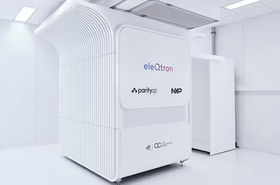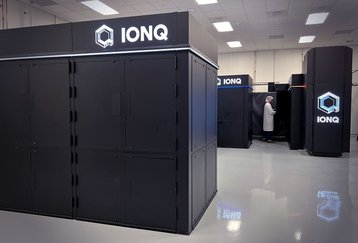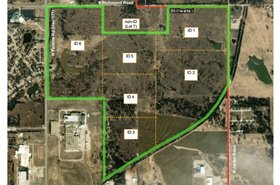IonQ is opening what it describes as the first quantum computing manufacturing facility in the United States to produce quantum computers that can be deployed in customers’ data centers.
In addition to opening the manufacturing plant - which will also feature a data center, the computing company also said it would be expanding its existing facilities in Seattle, Washington, increasing its footprint from 65,000 sq ft to 105,000 sq ft.
Located in Bothell, a suburb of Seattle, the new facility will become the company’s primary production engineering location in the country.
The site will also house IonQ’s second quantum data center and expanded R&D and manufacturing teams, including teams dedicated to rolling out the company’s IonQ Forte Enterprise and IonQ Tempo systems.
Specifications of the new data center have not been shared. Currently, IonQ's systems are largely made and hosted in its lab on the outskirts of Washington DC in Maryland.
Announced in September 2023, both are rack-mounted systems for on-premise deployments and have been designed for businesses and governments wanting to integrate quantum capabilities within their existing infrastructure.
Set to be available sometime this year, Forte Enterprise is a rack-mounted version of IonQ’s existing 32-qubit system, while Tempo – which has a 2025 launch date – is an Algorithmic Qubits (#AQ) 64 enterprise-grade system that the company says will “far exceed” what can be simulated with classical computers and GPUs.
Algorithmic Qubits is IonQ’s benchmark measure for how well a system performs.
“The Seattle facility represents a tangible realization of IonQ’s commitment to commercializing quantum and getting quantum computers into the hands of customers,” said IonQ CEO Peter Chapman. “IonQ is not just building a manufacturing facility; we’re also investing in the surrounding community drawing talent and thought leaders to Seattle and empowering organizations within the community with innovative quantum capabilities.”
In November 2023, IonQ posted a Q3 2023 net loss of $44.8 million, despite the company achieving its goal of $100 million in cumulative bookings within the first three years of commercialization.
On an earnings call after the results had been released, IonQ CFO Thomas Kramer said M&A opportunities “may arise” in the near to medium term.
More in HPC & Quantum
-

-

-

Episode The future of AI and HPC




